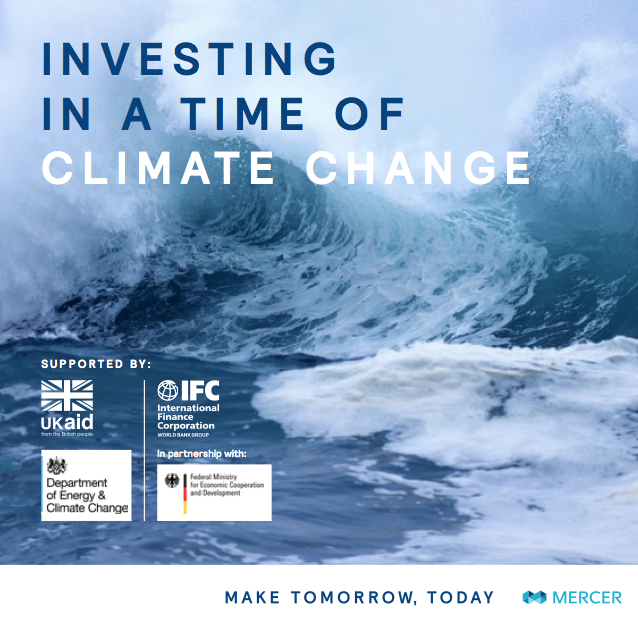Two themes that I have written about a great deal come together in this article. One is that risk of climate change is increasingly becoming factored into financial markets and financial decisions. I’ve cautioned about being invested in fossil fuel industry assets especially those companies that have trillions of dollars of fossil fuels on their balance sheets that could end up stranded: never extracted and monetized. While writing off these assets will cause huge trauma to the financial markets as a whole, it will be worst for those that are still holding direct interests in these assets.
That said, financial markets are beginning to recognize the risk. Recognition is a start: a necessary start. The next step is doing something about it. This article addresses that recognition is finally going “mainstream” and encourages doing something about it.
“climate change is becoming a “mainstream” concern in financial markets.”
“A Bank of England survey that reached 90 percent of the United Kingdom’s banking sector found that 70 percent of banks consider climate change a financial risk.”
The other theme that I’ve been writing about is that the consequences of climate change are happening MUCH faster than the “experts” have been predicting. (One of the reasons that this is so is that scientists and other academics are afraid to go out on a limb in their prognostications. I, on the other hand, don’t have my career at stake and am much freer to declare what I see and believe and don’t have to put up a scientific paper to justify it.) I’ve been harping about this for probably a decade or more. And, so far, I’ve been right.
This article reiterates this view (fact?).
“it’s happening quite quickly.””
I continue to say that massive changes are coming in so many ways and much quicker than many (most?) predict that you had better buckle up!
Climate is ‘Mainstream’ Risk in Banks, Regulator Says
Speaking at the One Planet Summit in New York City, Mark Carney, governor of the Bank of England, said banks increasingly see climate change as a financial hazard.
“This is about moving climate to the mainstream of finance,” Carney said. “And it’s happening quite quickly.“
A Bank of England survey that reached 90 percent of the United Kingdom’s banking sector found that 70 percent of banks consider climate change a financial risk. Those findings were included in a report released yesterday.
“So this is moving very fast,” Carney said.
Still, the report found that just 10 percent of banks are planning for “catastrophic” effects of climate change.
Since he became Britain’s central banker in 2013, Carney has made the examination of climate change and its economic ramifications a central theme.
A separate group, a Group of 20 task force created to prod private companies to disclose how climate change affects them, recently released a separate report with similar findings.
Many firms disclose how climate change overlaps with their operations, but few explain how it stresses them financially, the report found.
“There’s still much work to do,” Michael Bloomberg, the former New York City mayor and U.N. climate envoy, said in a letter to Carney last week.
“While many companies report on environmental issues, most have yet to specifically provide the market with consistent information on the financial implications of climate change for their businesses,” said Bloomberg. “In the coming year, we will vigorously support further implementation efforts.”
Carney, in his remarks yesterday, said the panel will release another report next summer, adding that financial markets will favor companies that embrace climate adaptation.
“Companies will either be disclosing or hiding,” Carney said.
“And the question is: Are you acting, are you disclosing, are you moving?” he added. “The best companies react to big structural change.”



